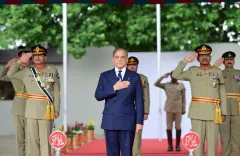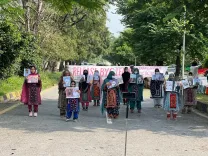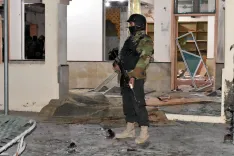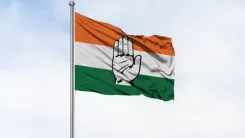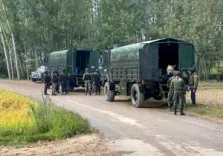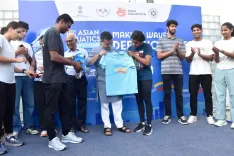Is the Northern Alliance Fragmented While India Deepens Its Engagement with the Taliban?
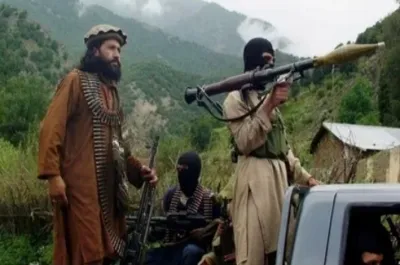
Synopsis
Key Takeaways
- The Northern Alliance is fragmented and lacks support.
- Ahmad Massoud is trying to revive his father's legacy but faces significant challenges.
- India is increasing engagement with the Taliban despite not formally recognizing the regime.
- Geopolitical dynamics in Afghanistan have shifted dramatically post-2021.
- The future for the remnants of the Northern Alliance looks bleak.
New Delhi, Sep 9 (NationPress) Over four years have passed since the Taliban regained control in Kabul after the U.S. troop withdrawal in 2021, leading to a fundamental shift in Afghanistan’s political landscape.
Once regarded as a powerful opposition to the Taliban, the Northern Alliance—dominant in the 1990s and early 2000s from its stronghold in Panjshir Valley—has effectively crumbled, now existing as dispersed voices abroad with scant support domestically or internationally.
Ahmad Massoud, the son of the famed anti-Taliban leader Ahmad Shah Massoud, has sought to resurrect his father's legacy by claiming the role of a resistance front leader.
In recent months, he has convened meetings in Western capitals, striving to rally political and financial support.
However, unlike in the 1990s when nations such as India and various Western powers offered support, today’s “resistance” finds itself largely isolated and overlooked.
An Afghan political figure disclosed to IANS, on the condition of anonymity, that the Northern Alliance has “become defunct.”
“Many prominent members have either permanently left Afghanistan or, in some instances, have integrated into the Taliban regime, abandoning the Alliance’s ideology. What remains is a fragmented group with limited relevance,” the leader emphasized.
The Alliance's disintegration is particularly striking given its historical significance.
During the Taliban’s initial rule (1996–2001), India stood as a staunch opponent and openly supported the Northern Alliance through political, logistical, and moral assistance.
The U.S.-led invasion post-9/11, partially supported by Northern Alliance fighters, positioned the group centrally in Afghanistan’s transitional landscape.
Yet, the geopolitical dynamics have transformed. With the Taliban firmly in control and foreign military presence non-existent, most capitals—including New Delhi—are adopting a pragmatic stance.
While India has refrained from formally recognizing the Taliban government, it has progressively enhanced avenues of engagement, from reopening its embassy in Kabul to initiating humanitarian aid, including the latest assistance following the devastating earthquake and discreet diplomatic interactions.
In recent months, India has quietly transferred Afghan consulates in Mumbai and Hyderabad, and analysts suggest that the Afghan mission in New Delhi could soon be handed over to Taliban diplomats.
“Delhi is engaging with the Taliban regime and is poised to strengthen this engagement further, considering the regional context and national interests,” the senior Afghan leader remarked.
For Ahmad Massoud and the remnants of the Northern Alliance, however, the future appears grim.


